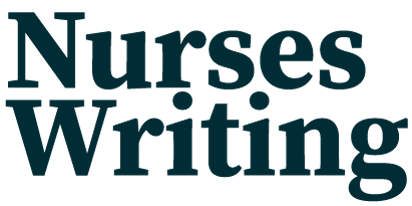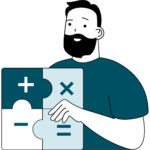Educational Technology Needs Assessment
The utilization of innovation in nursing schooling is helping medical services experts in handling difficulties throughout the long term. Nursing training is developing quickly because of related changes like the improvement of sicknesses, changing medical care needs, progressions in innovation, and patient worries. Innovation and virtual-based rehearses need persistent updates. It further develops attendants’ critical thinking and initiative abilities and upgrades medication conveyance potential (Contreras et al., 2020).
NURS FPX6109 Assessment 1 Vila Health: Educational Technology Needs Assessment
The Use of Current Technology by the Nurses
The Johns Hopkins College Baltimore is one of the most established and most esteemed research colleges in the US. It offers different nursing confirmations, partner degrees, and subsidiary clinical examination programs.
Medical caretakers utilizing instructive innovation inside a particular setting
John Hopkin college utilizes Man-made consciousness (computer-based intelligence ) innovation to make modified learning programs for medical attendants. It assists medical caretakers with zeroing in on the areas where they have an individual interest. In the interim, simulated intelligence innovation is being utilized to make shrewd coaching frameworks that can give customized criticism to medical caretakers (Robert, 2019)
Instructive Innovation in Nursing Training
Additionally, computer based intelligence innovation is likewise used to further develop the decision-production of attendants, computer based intelligence created virtual patients are being utilized for clinical trial and error, and reenactment apparatuses are utilized to show medical attendants different operations. There are related vulnerabilities with the computer based intelligence models, the AI interaction of artificial intelligence innovation carves out opportunity to legitimately perform. During the course of AI, there are dependably chances of surprising outcomes and dubious choice makings (Randhawa et al., 2019). Later on medical attendants from John Hopkin College will actually want to perform better with further developed educational experiences and the technology(AI) will likewise work on the results in the soundness of patients too.
Comparison of the Current State with Desired State
Man-made intelligence innovations, for example, AI might actually be utilized to help with errands like evaluating tasks, giving customized criticism to understudies, and recognizing regions where understudies might require extra help. Artificial intelligence could likewise be utilized to make intelligent learning materials and reenactments, which could assist understudies with bettering grasp complex ideas and foster useful abilities.
Present status
The present status of the utilization of man-made intelligence is useful yet it has an issue of vulnerability to make sense of the complicated cases. Medical attendants have a few issues and legitimate simulated intelligence-based training isn’t accessible.
Wanted State
The ideal condition of nursing schooling expects to accomplish most extreme result in their clinical practices by consolidating simulated intelligence in their schooling. The medical attendants will be completely taught in regards to the artificial intelligence procedures and devices that will upgrade their clinical abilities to work on understanding consideration and security.
One wanted utilization of computer-based intelligence in nursing schooling is the utilization of augmented reality (VR) and expanded reality (AR) advancements to make vivid opportunities for growth that is presently ailing in the nursing training (Pottle, 2019). AR could likewise be utilized to furnish understudies with ongoing data and direction as they perform errands, for example, regulating prescriptions or performing evaluations (Shorey, 2019)
The present status is dependent on the conventional showing strategies and the ideal state prerequisite is to supplant the customary techniques by man-made intelligence based instruments and procedures. It ought to likewise be perceived that the utilization of computer-based intelligence in schooling may not be reasonable for all understudies, and facilities might should be made in current nursing schooling system for the people who may not profit from or experience issues cooperating with man-made intelligence fueled learning materials (Buchanan et al., 2021)
NURS FPX6109 Assessment 1 Vila Health: Educational Technology Needs Assessment
Examination of Wanted and Present status
To assess the inside and outer variables that can affect the utilization of simulated intelligence in attendants’ learning I’m utilizing SWOT examination.
Qualities
Because of limit in access of instructive assets in the present status, the ideal state is meaning to reinforce the nursing schooling system by giving admittance to many instructive assets, for example, reproductions and virtual patient cases, that can upgrade learning and permit understudies to rehearse abilities in a protected climate.
Shortcomings
Despite the fact that the ideal state is pursuing collaborations and choice making rehearses simpler for them yet at the same time they might battle to adjust to learning with artificial intelligence, particularly on the off chance that they are curious about innovation or favor more conventional types of schooling.
Potential open doors
The present status has restricted open doors towards development and advancing yet the ideal state can assist with expanding the availability of nursing training, making it workable for understudies to gain from any place with a web association.
Dangers
Present status might have worries about the precision and unwavering quality of man-made intelligence based nursing schooling programs because of restricted admittance to simulated intelligence innovation yet the ideal state is satisfying this hole by the use of remote administrations gave by medical attendants instructed artificial intelligence apparatuses.
Assessment of Metrics
There are a few measurements that could be utilized to decide the advantages of computer based intelligence in the learning of nursing understudies. These may include:
Further developed test scores
One method for estimating the advantages of computer based intelligence in nursing training is to follow changes in test scores when the execution of computer based intelligence based learning apparatuses. This could incorporate both developmental evaluations, (for example, tests and practice tests) as well as tests and certificate tests.
Expanded maintenance and review of data
Man-made intelligence-based learning apparatuses can be intended to help nursing understudies hold and review data all the more successfully.
More noteworthy commitment, Quick Learning, and Inspiration
Man-made intelligence-based learning apparatuses can be intended to be more intelligent and connecting with than customary techniques, which might prompt expanded inspiration and commitment among nursing understudies. This can be estimated through reviews or center gatherings, or through following measures like participation and cooperation. Moreover, man-made intelligence based learning instruments can be intended to adjust to the necessities and capacities of nursing understudies, possibly prompting quicker learning.
Worked on clinical abilities
Simulated intelligence based learning devices can be utilized to recreate clinical situations, permitting understudies to rehearse and foster their abilities in a protected, controlled climate. This can be estimated through appraisals of clinical execution or through assessments by clinical educators.
Recommendation
There is proof to propose that simulated intelligence-based learning devices can be viable in the learning of nursing understudies. To improve the viability of artificial intelligence in the learning of nursing understudies, there are a couple of proposals to consider:
Use simulated intelligence-based learning devices as enhancements, as opposed to substitutions, for conventional instructing techniques.
While simulated intelligence-based learning devices can be powerful, they ought not be utilized as the sole strategy for instructing. All things being equal, they ought to be utilized as enhancements to customary showing strategies, like talks and involved practice.
One of the advantages of simulated intelligence-based learning devices is their capacity to adjust to the necessities and capacities of individual understudies. To augment their adequacy, it is vital to guarantee that these instruments are customized to the necessities of every understudy
To decide the viability of simulated intelligence-based learning apparatuses, it means a lot to track and screen their adequacy. This could remember following changes for test scores and maintenance and gathering input from understudies and educators.
To guarantee that they are successful, it means a lot to stay aware of these turns of events and make refreshes depending on the situation. To guarantee that simulated intelligence-based learning devices are utilized really, it is vital to give preparing and backing to medical caretakers on the most proficient method to involve these apparatuses in their study hall and clinical practices in their expert profession.
Alignment of New Technology with the Mission of Organization
The essential mission of Johns Hopkins College in Baltimore incorporates a guarantee to propelling information and furnishing understudies with elite training. Man-made intelligence innovation can assume a part in this mission by supporting and upgrading the learning of nursing understudies at the college (Amann et al., 2020).
One way that artificial intelligence innovation can uphold the essential mission of Johns Hopkins College is by giving customized and versatile growth opportunities for nursing understudies. Man-made intelligence-based learning devices can investigate understudy information and adjust to the requirements and capacities of every individual understudy, giving a more custom-made growth opportunity. This can assist understudies with learning all the more really and effectively, possibly prompting further developed test scores and maintenance of data.
Another way that simulated intelligence innovation can uphold the essential mission of Johns Hopkins College is by giving understudies chances to rehearse and foster their clinical abilities in a protected, controlled climate. Artificial intelligence-based learning apparatuses can mimic clinical situations and permit understudies to rehearse their abilities, working on their readiness for genuine clinical circumstances. Generally speaking, the utilization of man-made intelligence innovation in the training of nursing at Johns Hopkins College can assist with propelling information and furnish understudies with a top notch schooling, lining up with the college’s essential mission (Gardner et al., 2018).
NURS FPX6109 Assessment 1 Vila Health: Educational Technology Needs Assessment
Conclusion
The utilization of innovation has additionally given ideal outcomes in each field of life. Man-made reasoning is pretty much as old as Data Innovation (IT). Man-made intelligence has created learning strategies and showing modules and unbelievably turned the method of knowledge for understudies. Programmed handling and examination of information will assist nursing understudies with getting better clinical practices and guarantee patient consideration and security.
References
Amann, J., Blasimme, A., Vayena, E., Frey, D., & Madai, V. I. (2020). Explainability for artificial intelligence in healthcare: A multidisciplinary perspective. BMC Medical Informatics and Decision Making, 20(1).
https://doi.org/10.1186/s12911-020-01332-6
Buchanan, C., Howitt, M. L., Wilson, R., Booth, R. G., Risling, T., & Bamford, M. (2021). Predicted Influences of Artificial Intelligence on Nursing Education: Scoping Review. JMIR Nursing, 4(1), e23933.
https://doi.org/10.2196/23933
Gardner, R. L., Cooper, E., Haskell, J., Harris, D. A., Poplau, S., Kroth, P. J., & Linzer, M. (2018). Physician stress and burnout: the impact of health information technology. Journal of the American Medical Informatics Association, 26(2), 106–114. https://doi.org/10.1093/jamia/ocy145
Pottle, J. (2019). Virtual reality and the transformation of medical education. Future Healthcare Journal, 6(3), 181–185.
https://doi.org/10.7861/fhj.2019-0036
Randhawa, G. K., & Jackson, M. (2019). The role of artificial intelligence in learning and professional development for healthcare professionals. Healthcare Management Forum, 33(1), 19–24.
https://doi.org/10.1177/0840470419869032
Robert, N. (2019). How artificial intelligence is changing nursing. Nursing Management (Springhouse), 50(9), 30–39.
https://doi.org/10.1097/01.numa.0000578988.56622.21
Shorey, S., Ang, E., Yap, J., Ng, E. D., Lau, S. T., & Chui, C. K. (2019). A Virtual Counseling Application Using Artificial Intelligence for Communication Skills Training in Nursing Education: Development Study. Journal of Medical Internet Research, 21(10), e14658. https://doi.org/10.2196/14658

